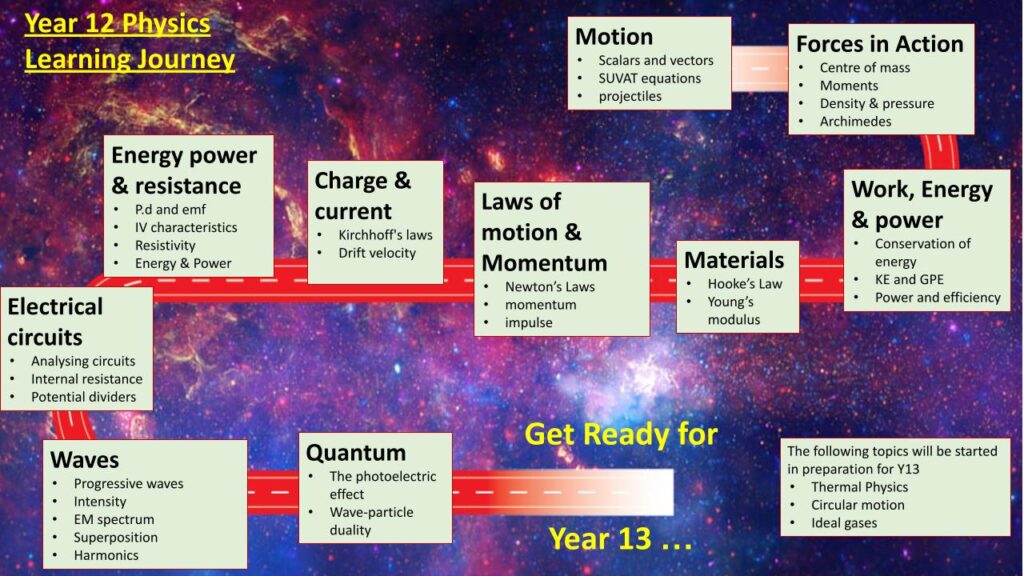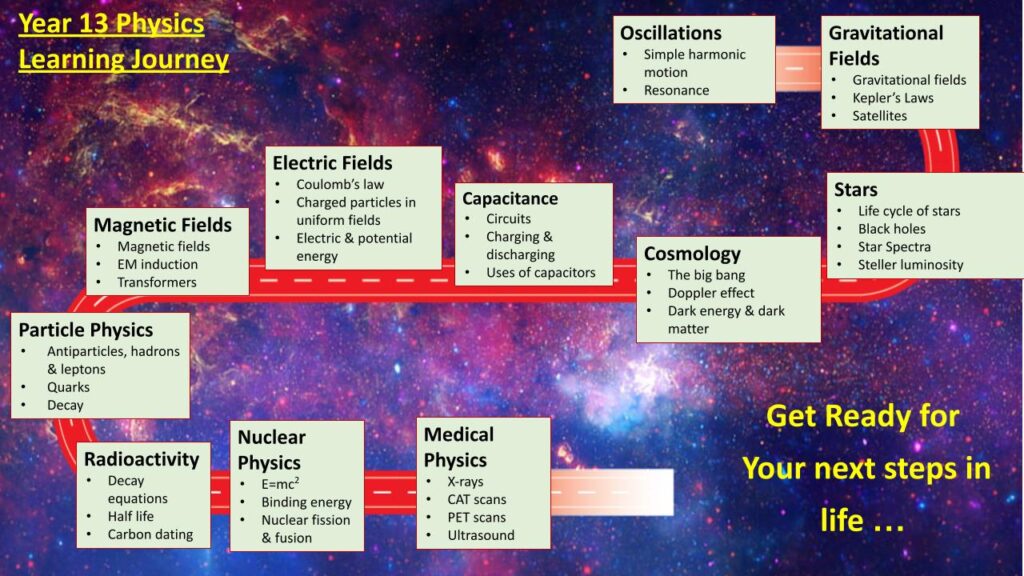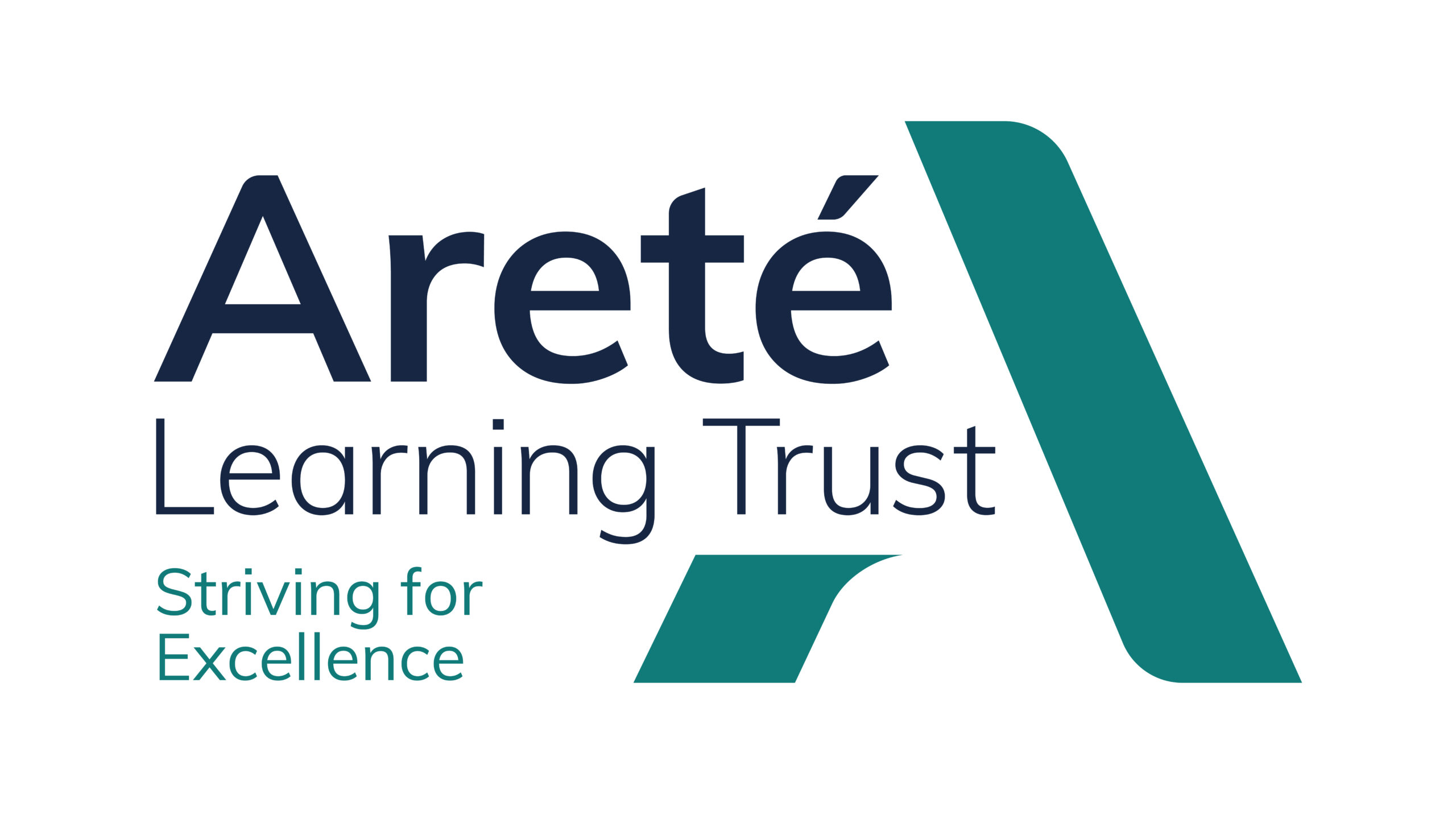
Science

Science is part of every aspect of our lives, and arguably one of the most important subjects students study at the academy.
It is how our bodies work, why we become ill, how we get well, our impact on the world around us and how that world works. It is key to students’ understanding of moral and ethical issues, such as what their part in global warming should be, whether we should allow stem cell research and what we should do about the energy crisis that will affect the world in their lifetimes. There is no aspect of a student’s life that science does not touch, and all students are entitled to the opportunity to develop their understanding of these things.
Science Department
Mr Peter Campbell
Assistant Head of Department – Science (KS3)
pcampbell@nunthorpe.co.uk
01642310561 EXT: 1079
Mr Chris Chalmers
Science Teacher
cchalmers@nunthorpe.co.uk
01642310561 EXT:
Mrs Susanne Davison
Science Teacher
sdavison@nunthorpe.co.uk
01642 304550 EXT: 3007
Graeme Ellis
Science Technician
GEllis@nunthorpe.co.uk
01642310561 EXT:
Mrs Hannah Grant
Science Teacher
hgrant@nunthorpe.co.uk
01642310561 EXT:
Mr Martin Greaves
Science Teacher
mgreaves@nunthorpe.co.uk
01642310561 EXT:
Mr Gary Leach
Science Technician
gleach@nunthorpe.co.uk
01642 304550 EXT: 3007
Mr James Peart
Assistant Head of Department – Science (KS4)
jpeart@nunthorpe.co.uk
01642310561 EXT: 1046
Mrs Gemma Richardson
Science Teacher
grichardson@nunthorpe.co.uk
01642310561 EXT:
Mr James Skelton
Assistant Vice Principal – Achievement (EBacc) 11-19
jskelton@nunthorpe.co.uk
01642310561 EXT: 1072
Mr Robert Thomas
Science Teacher
rthomas@nunthorpe.co.uk
01642310561 EXT:
Mr Peter Wilson
Science Technician
pwilson@nunthorpe.co.uk
01642 304550 EXT: 3007
Mrs Ally Zaitschenko
Science Teacher
azaitschenko@nunthorpe.co.uk
01642310561 EXT:
Year 6 Transition
The transition work we do at the end of year 6, before students join us focusses on building the skills needed to work in a science lab, and is mainly practical. This allows students to build their confidence in an unfamiliar setting and to test out some of the knowledge that they gained at KS2. The lessons they then start in September are designed to bridge the gap between KS2 and 3, and to set them up ready for GCSEs.
Key stage 3
KS3 Science sets the foundations for GCSEs and A-Levels. We offer lessons which are accessible for all students in the class and we create opportunities in every lesson for students to push beyond their target grades. We encourage a ‘can do’ attitude and prepare solid foundations to aid rapid progress with an awareness of how skills transfer to other subjects and the real-world. There are lots of opportunities to benefit from extra support when required. The order of the units may be slightly altered when a class is split between two or more teachers.
The Learning Journey
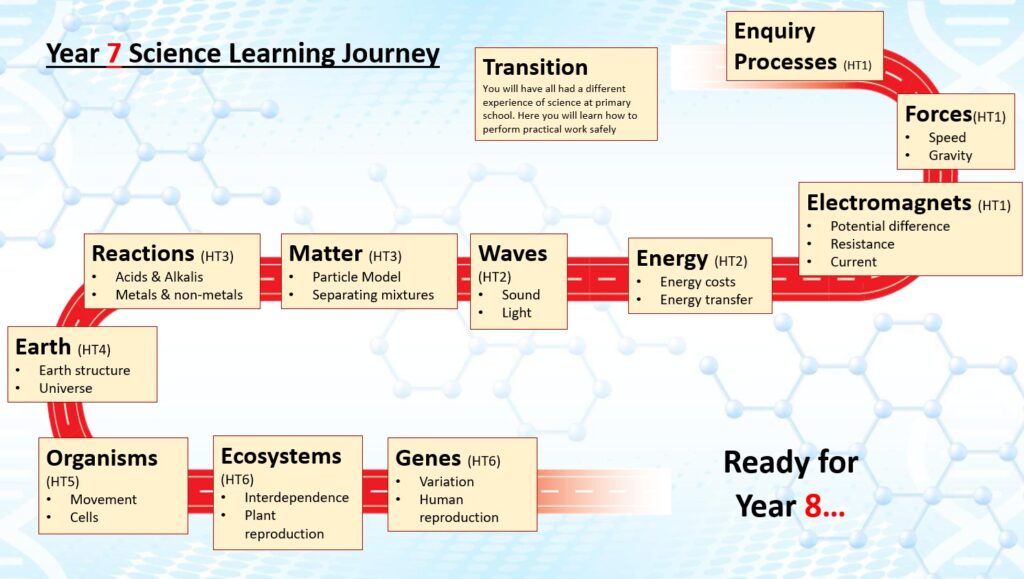
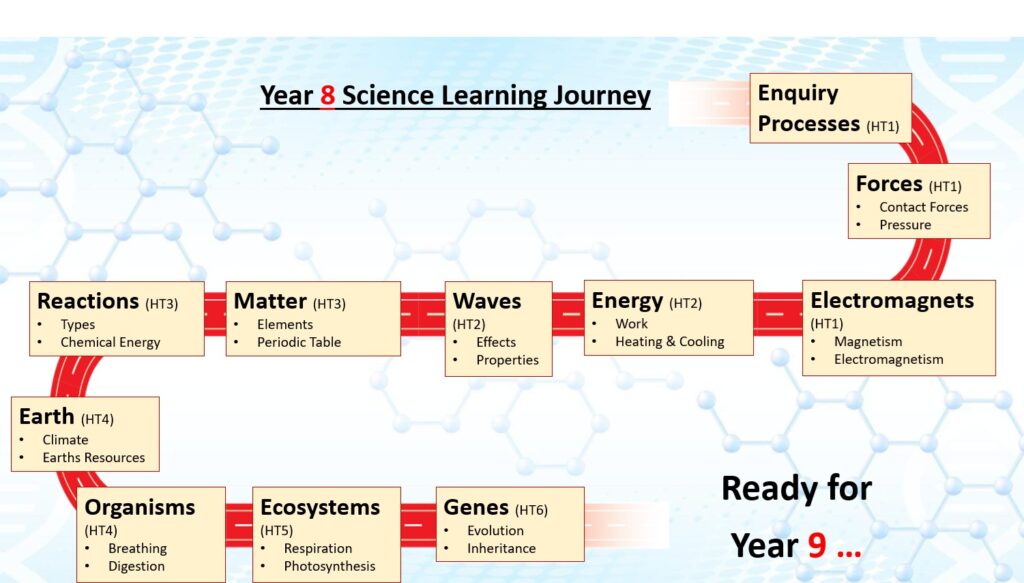
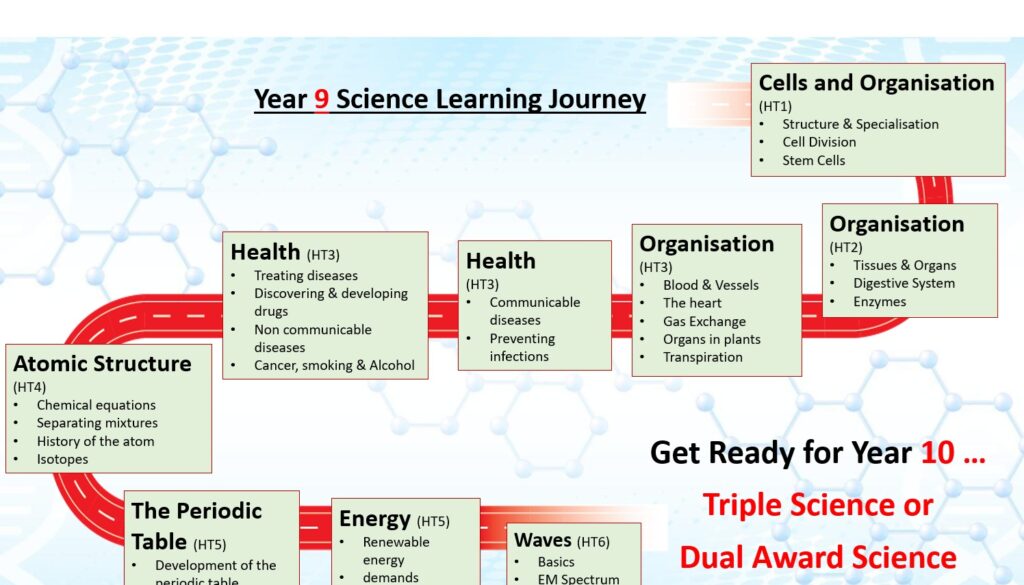
Key stage 4
At KS4 we aim to provide students with the best qualification route to suit their abilities and aspirations. To this end we currently offer GCSEs in all three separate sciences (Biology, Chemistry and Physics) and GCSEs in Combined Science using the AQA trilogy specification.
GCSE exam board – AQA https://www.aqa.org.uk/subjects/science/gcse.
The Learning Journey
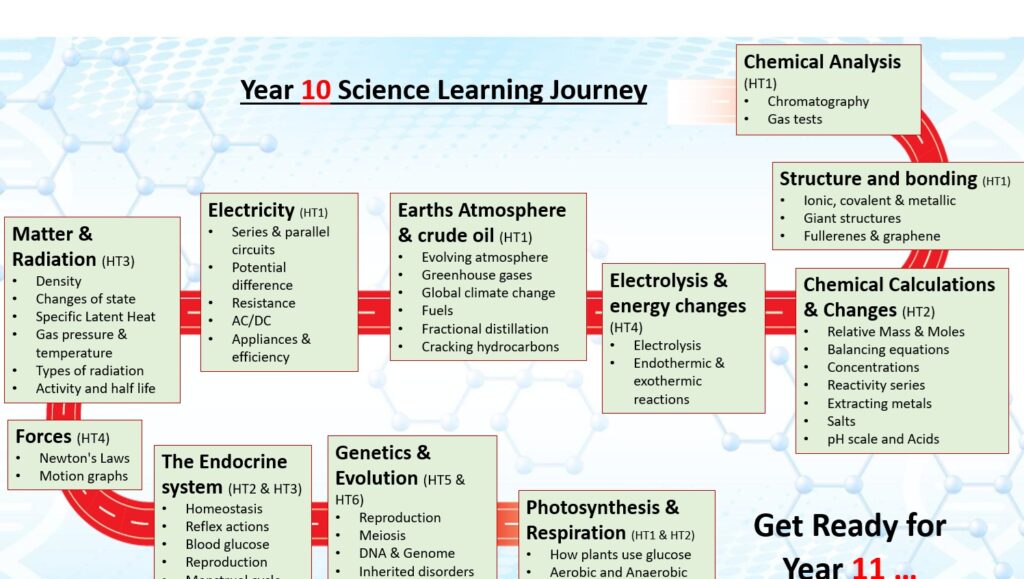
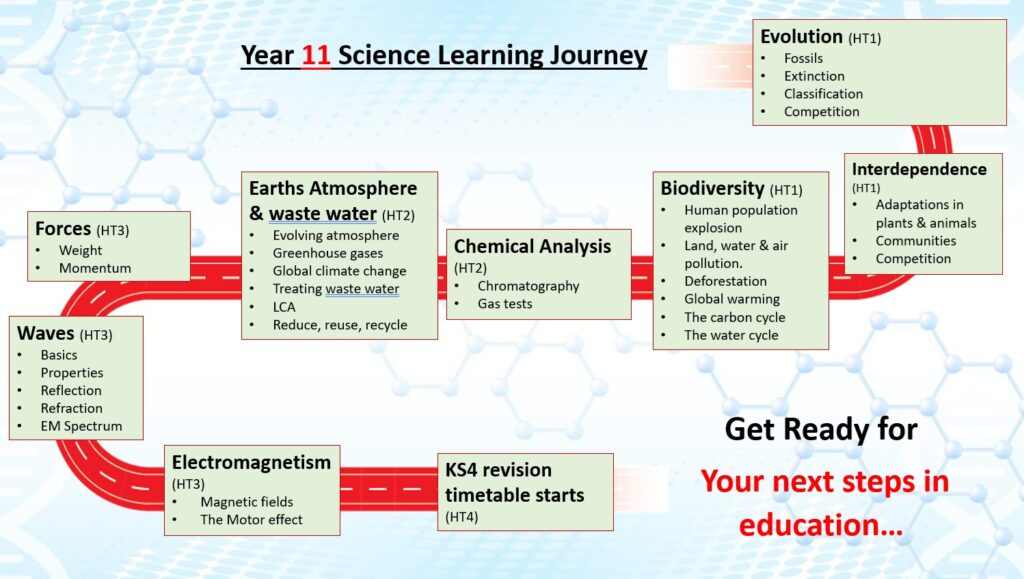
Key stage 5
The sciences at KS5 are delivered via AS and A Level Biology Chemistry and Physics. These stretch even the most able students and are the ideal base for moving on to university. All three sciences develop the students’ practical and transferable skills, making them more independent and able to move forward on their chosen path.
A Level Chemistry Overview
Exam board – OCR.
The Learning Journey
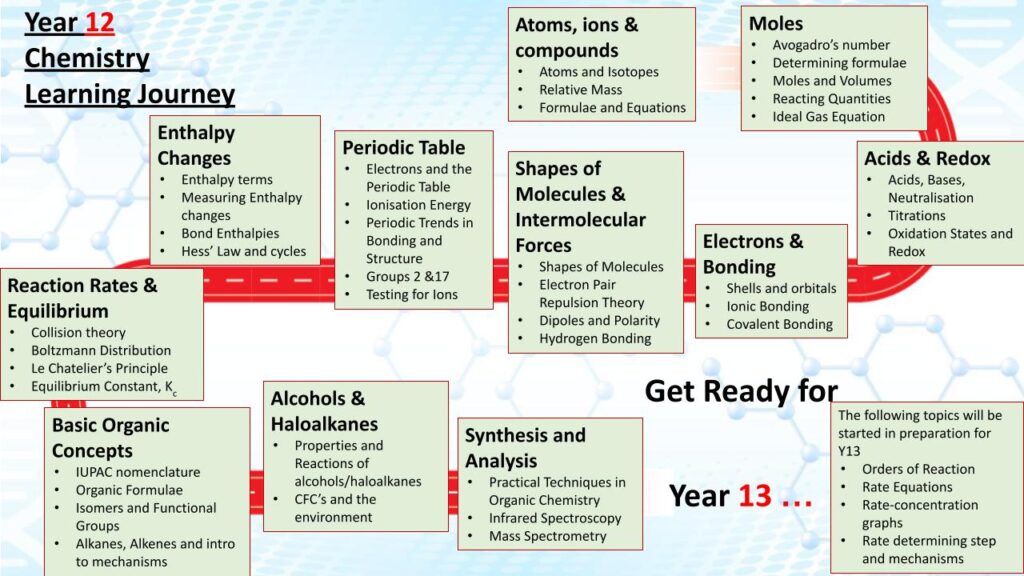
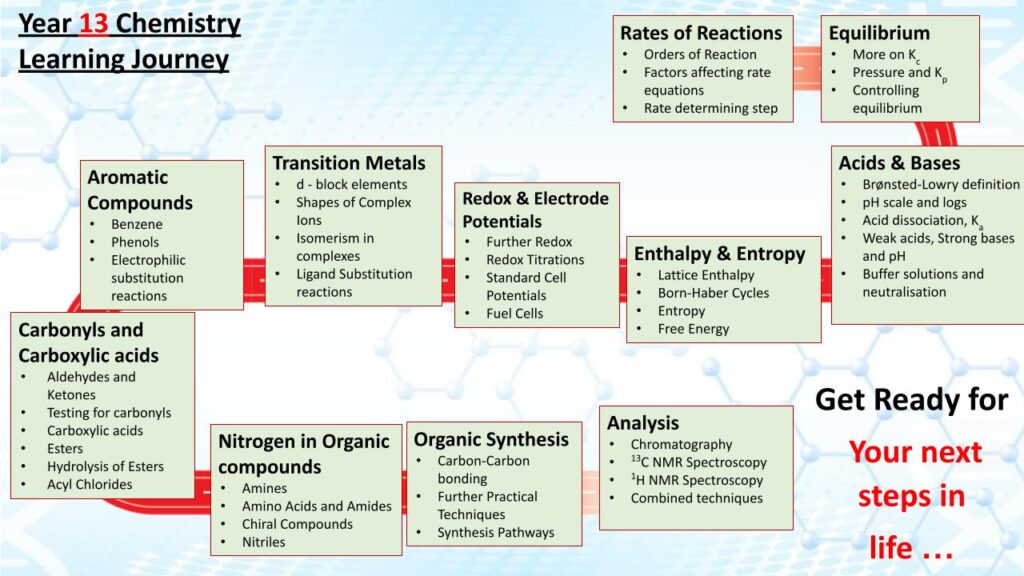
A Level Biology Overview
Exam board – OCR.
The Learning Journey
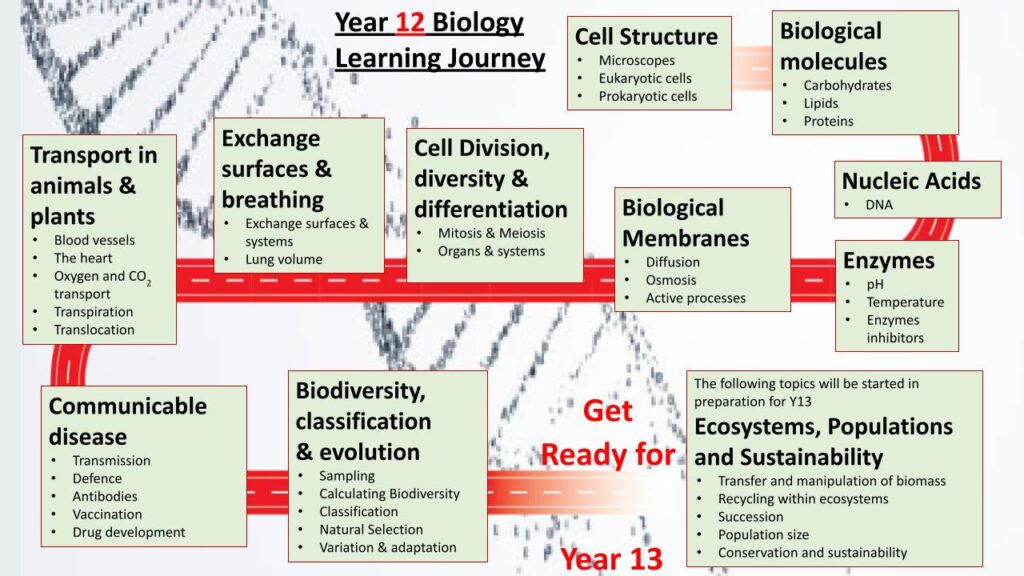
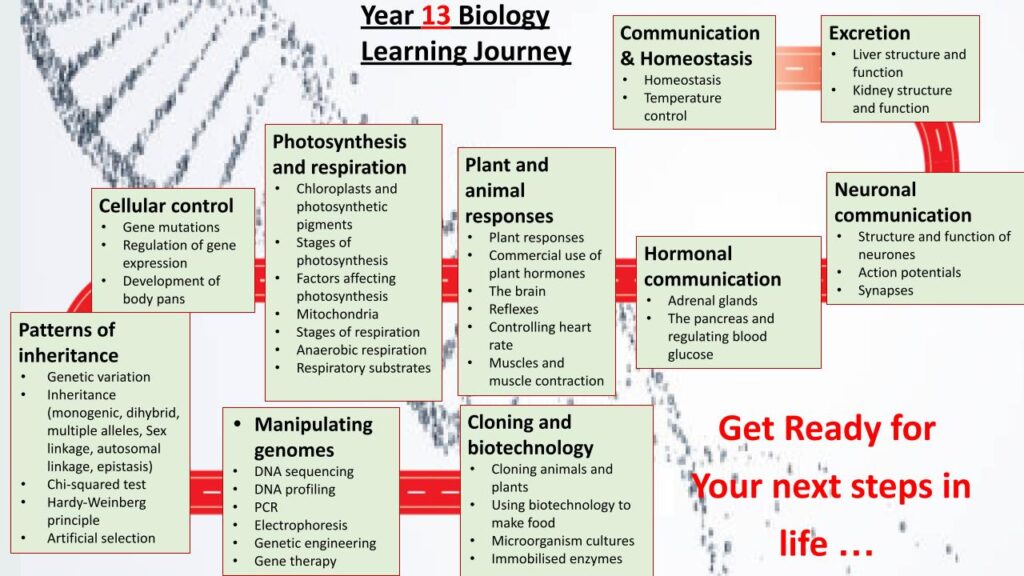
A Level Physics Overview
Exam board – OCR.
The Learning Journey
